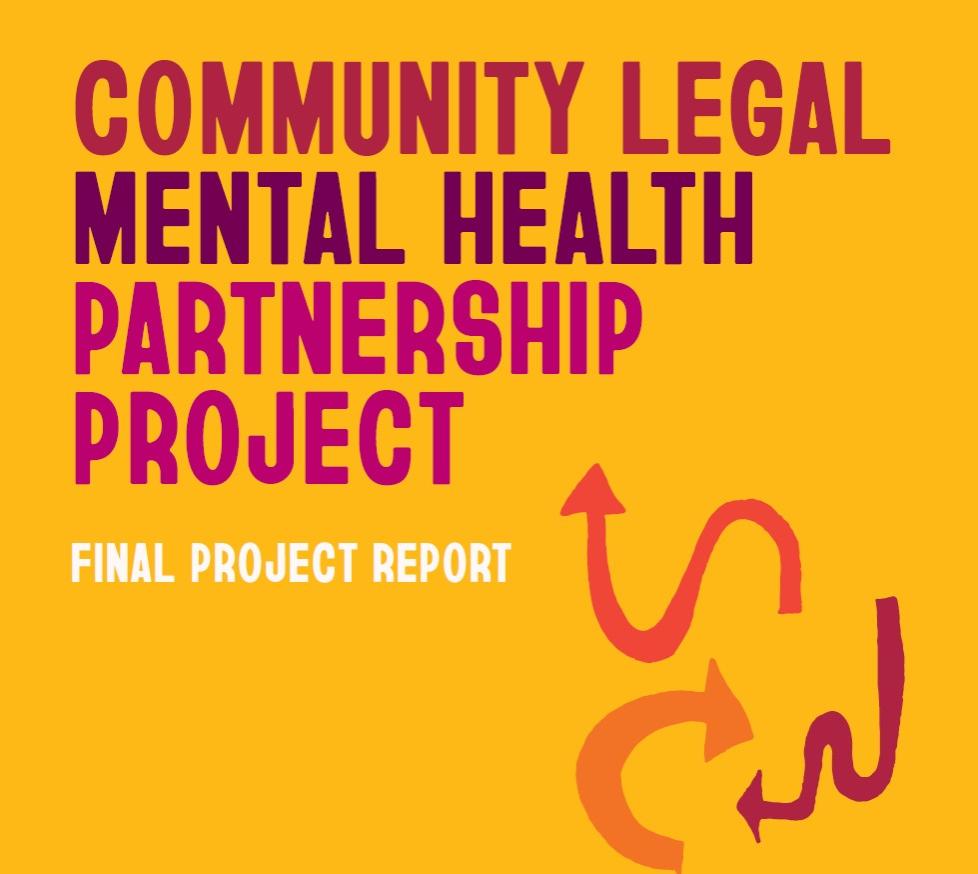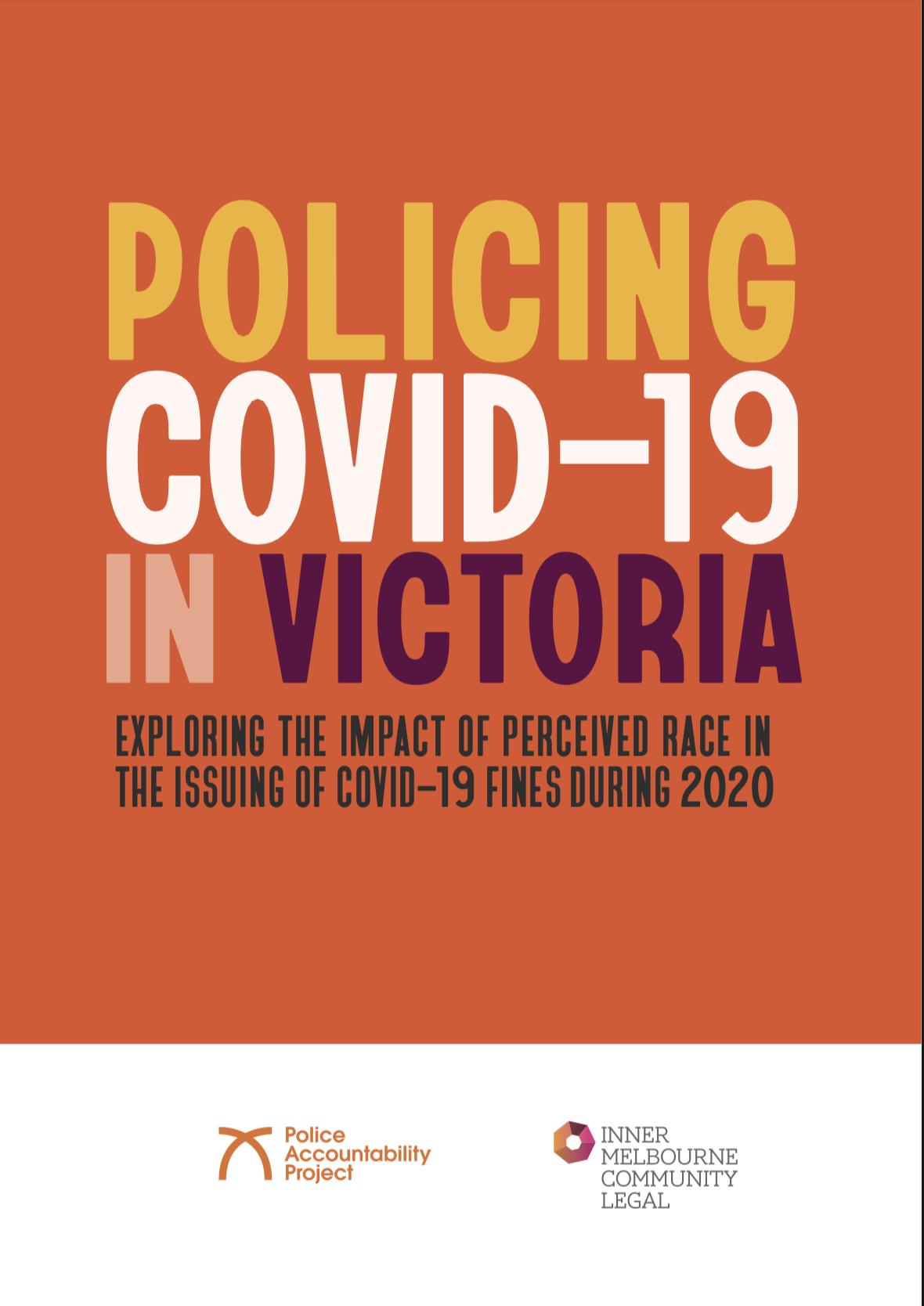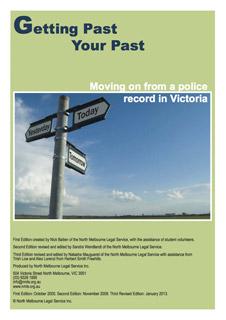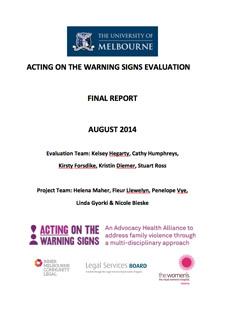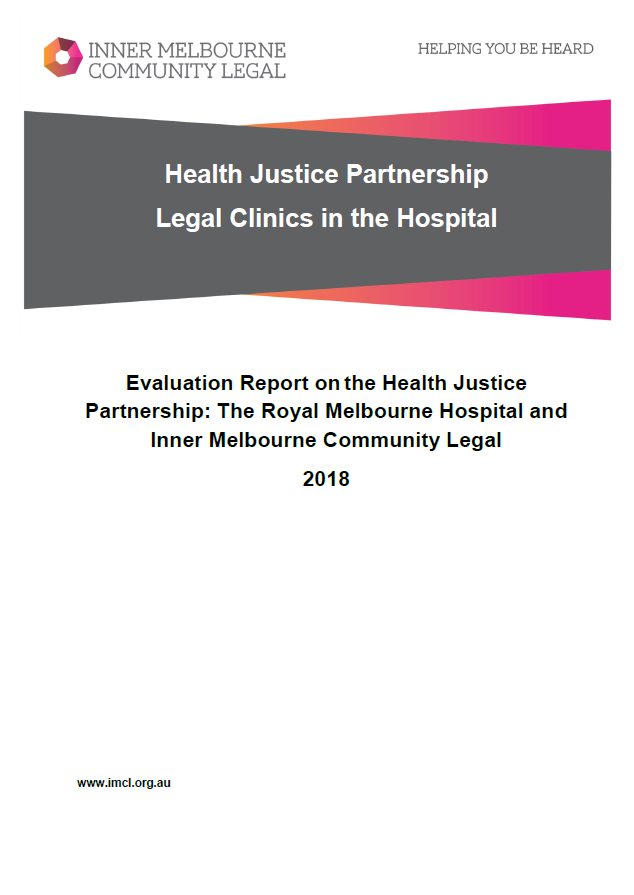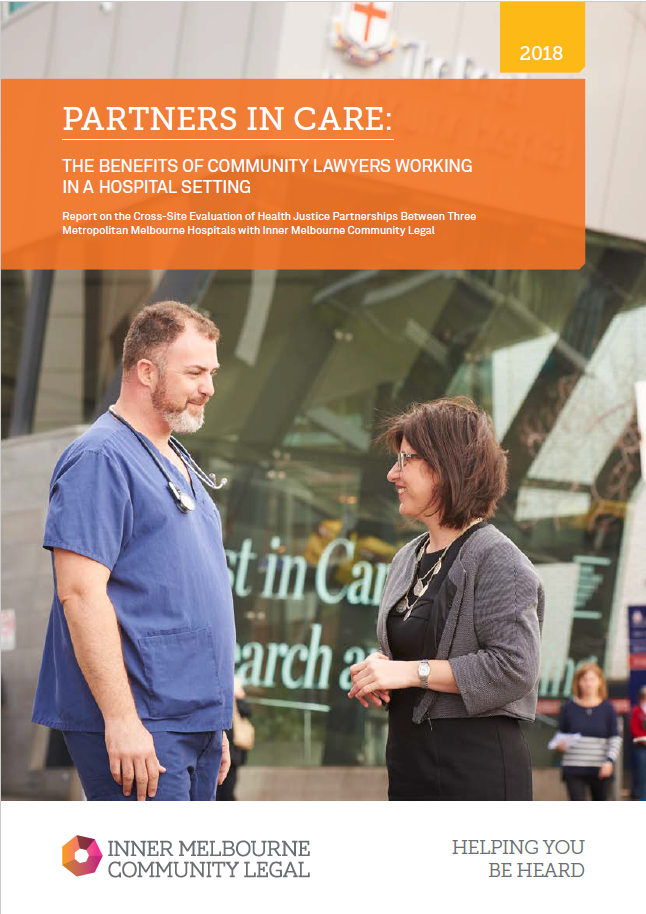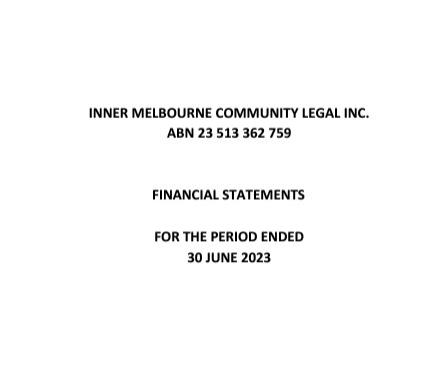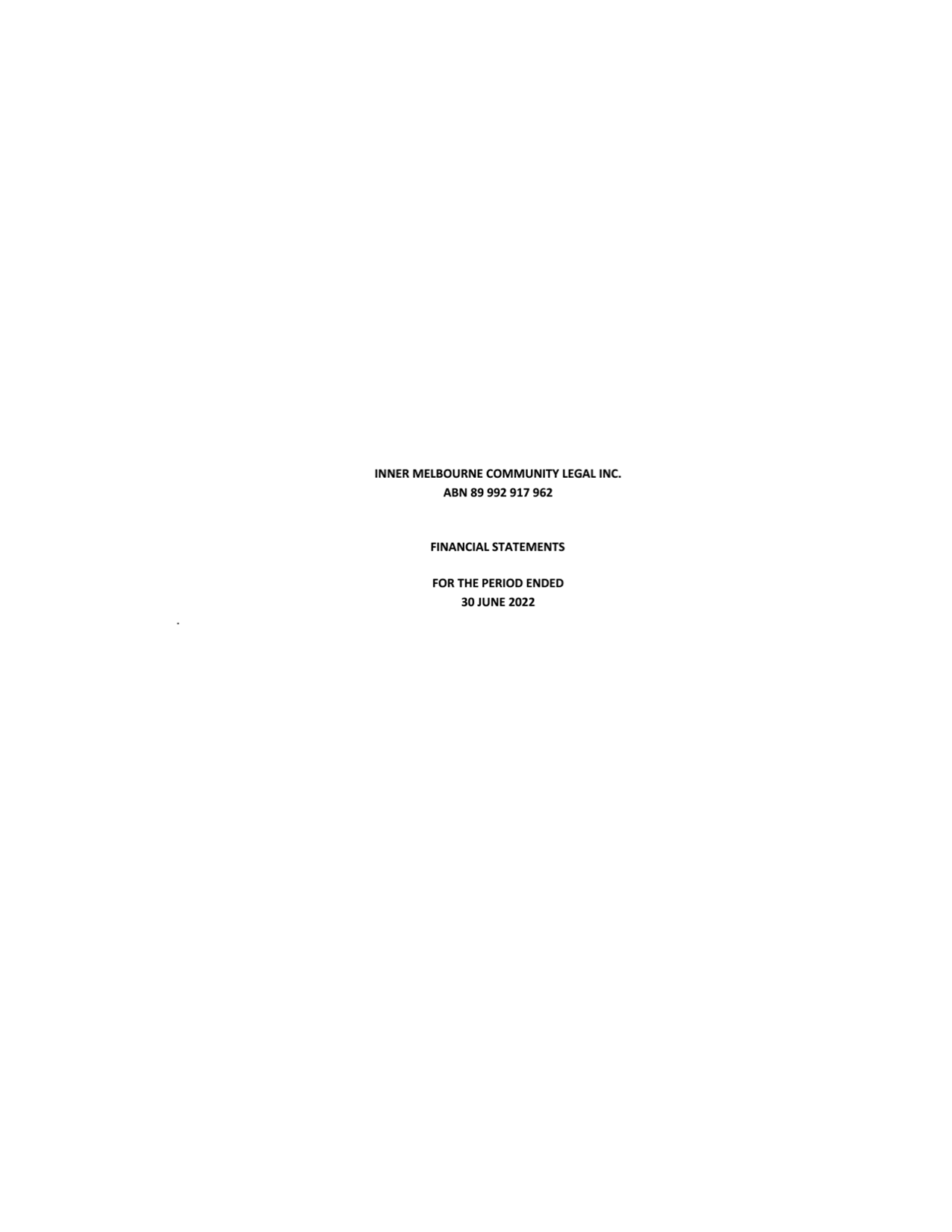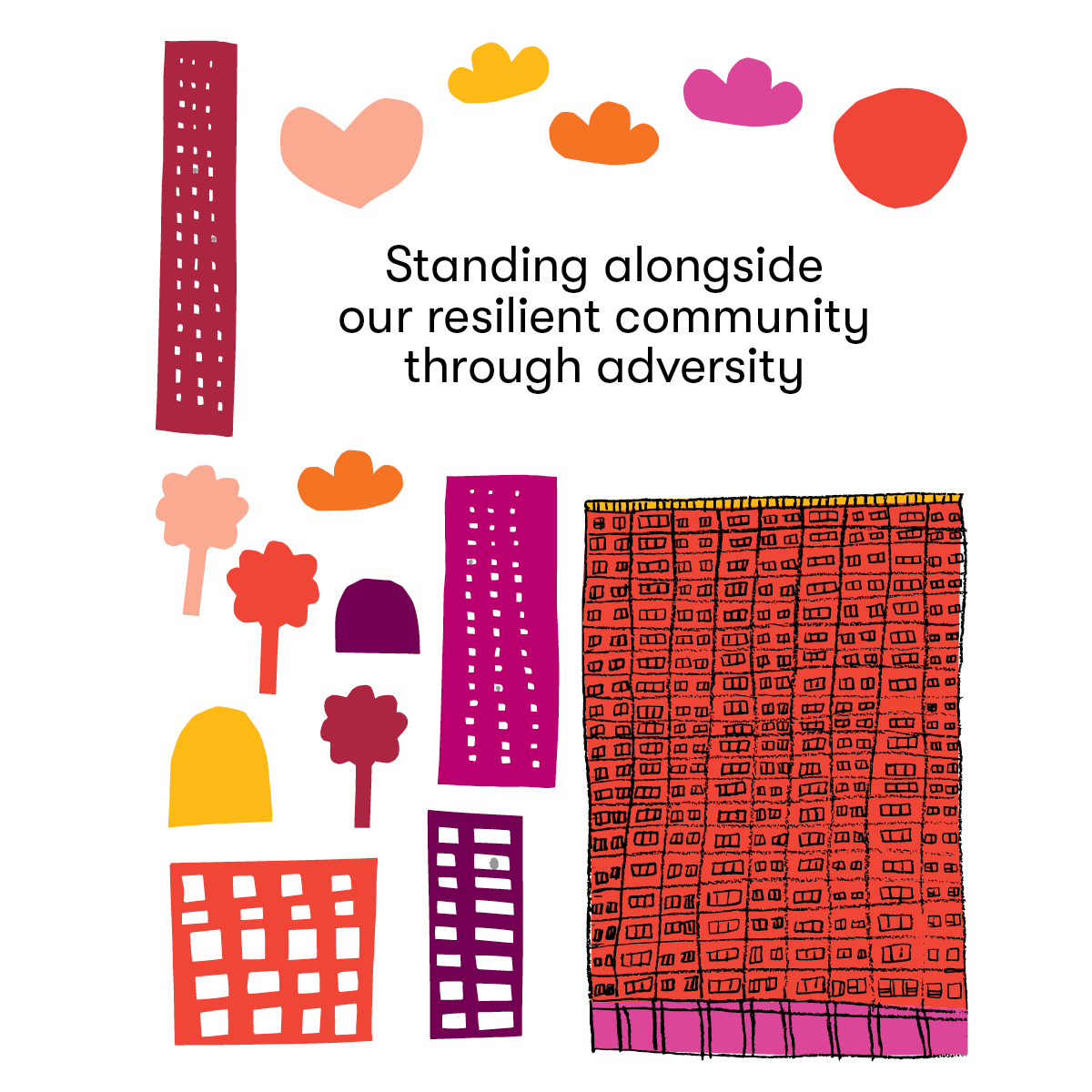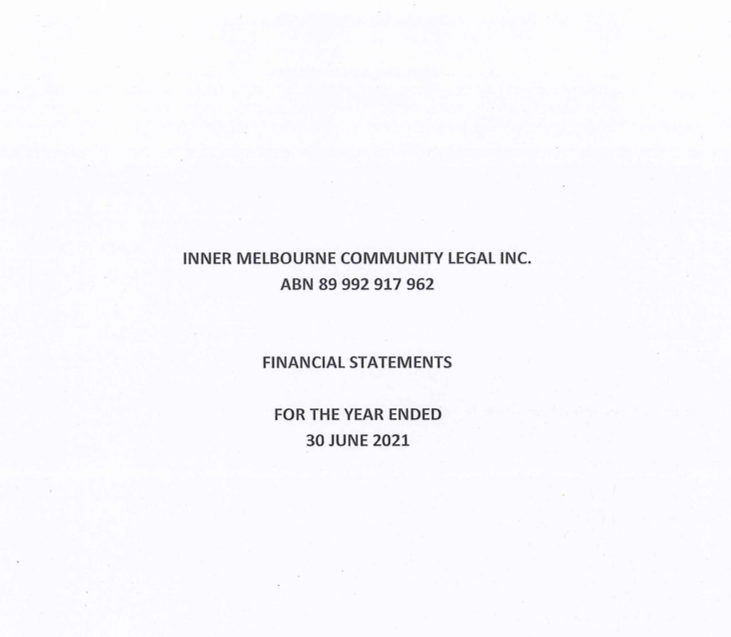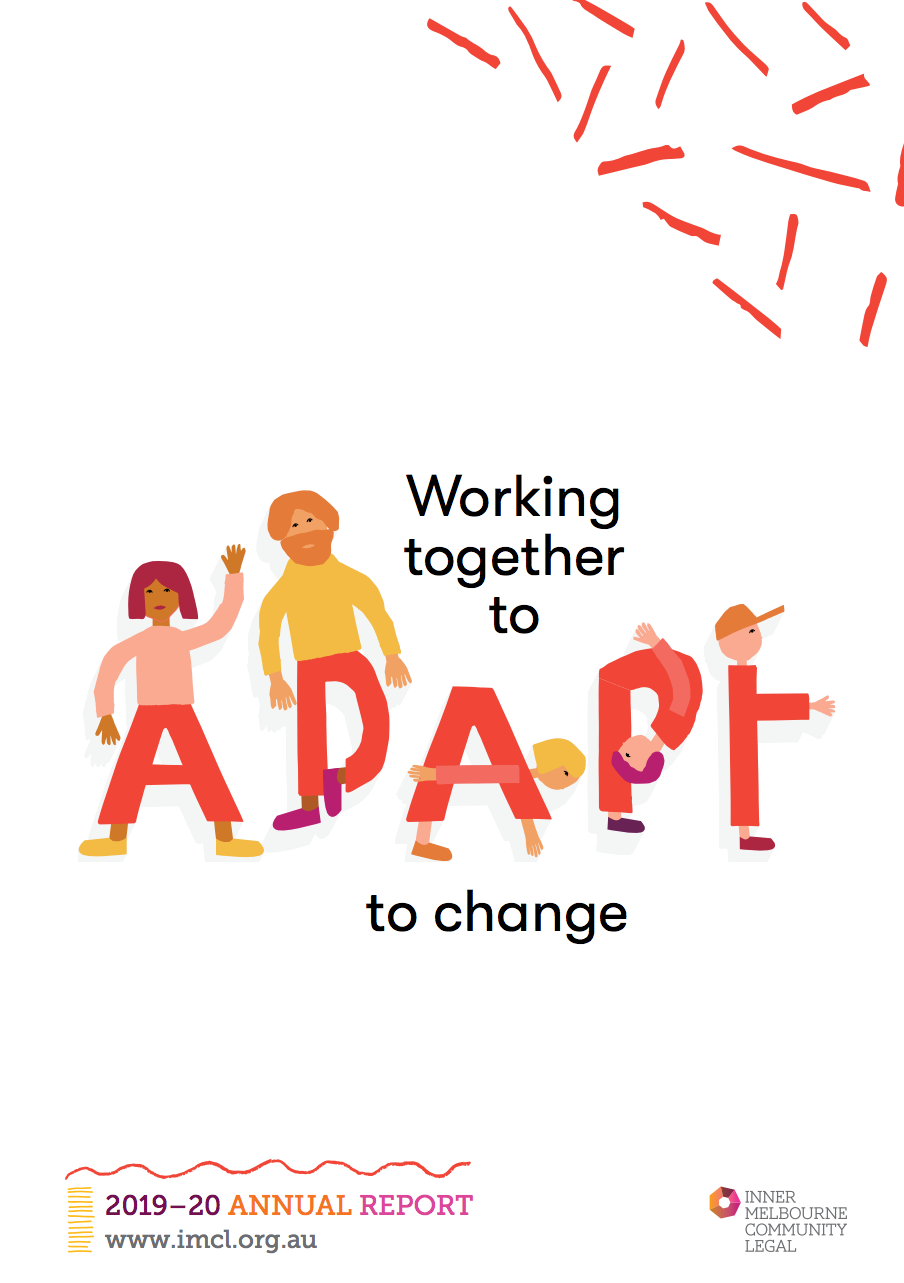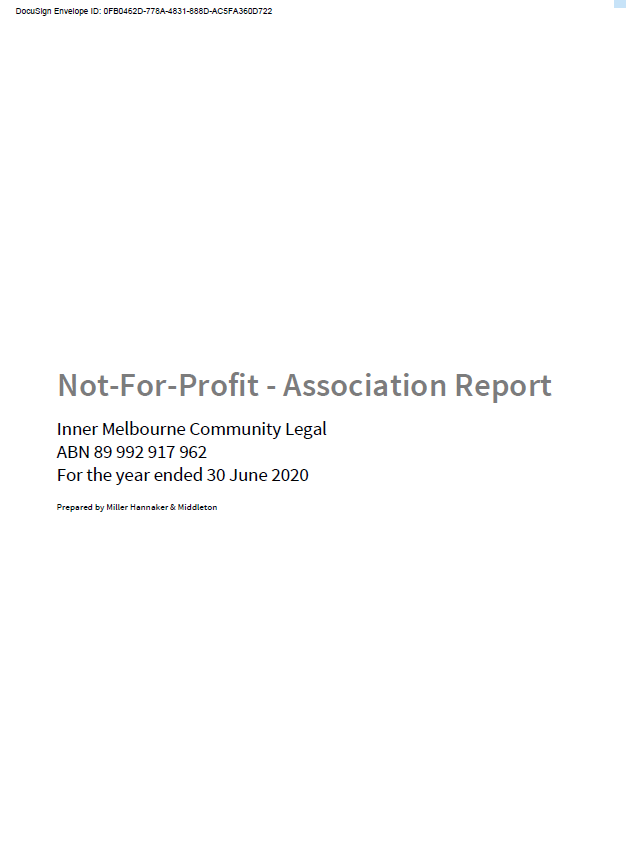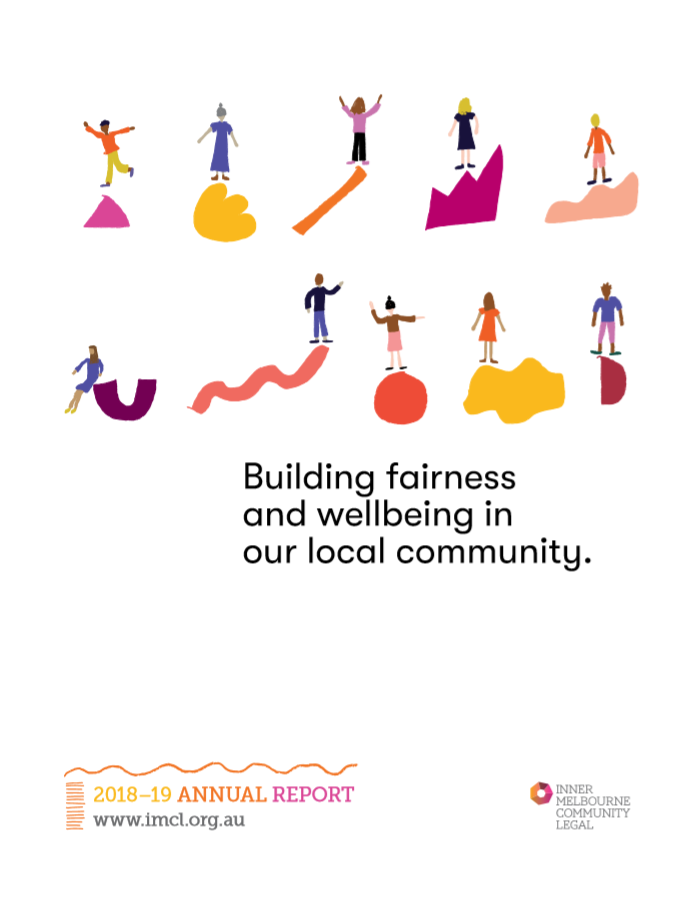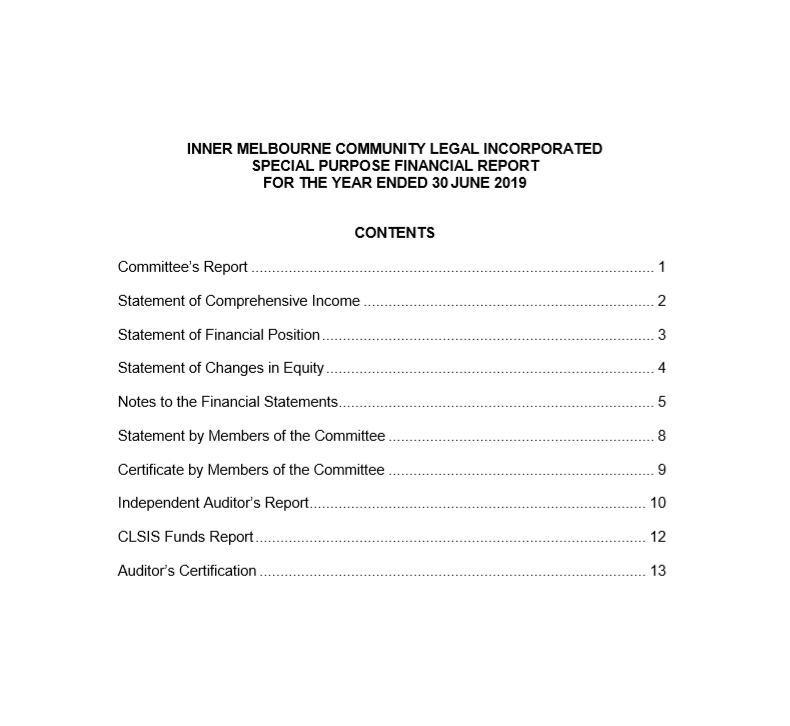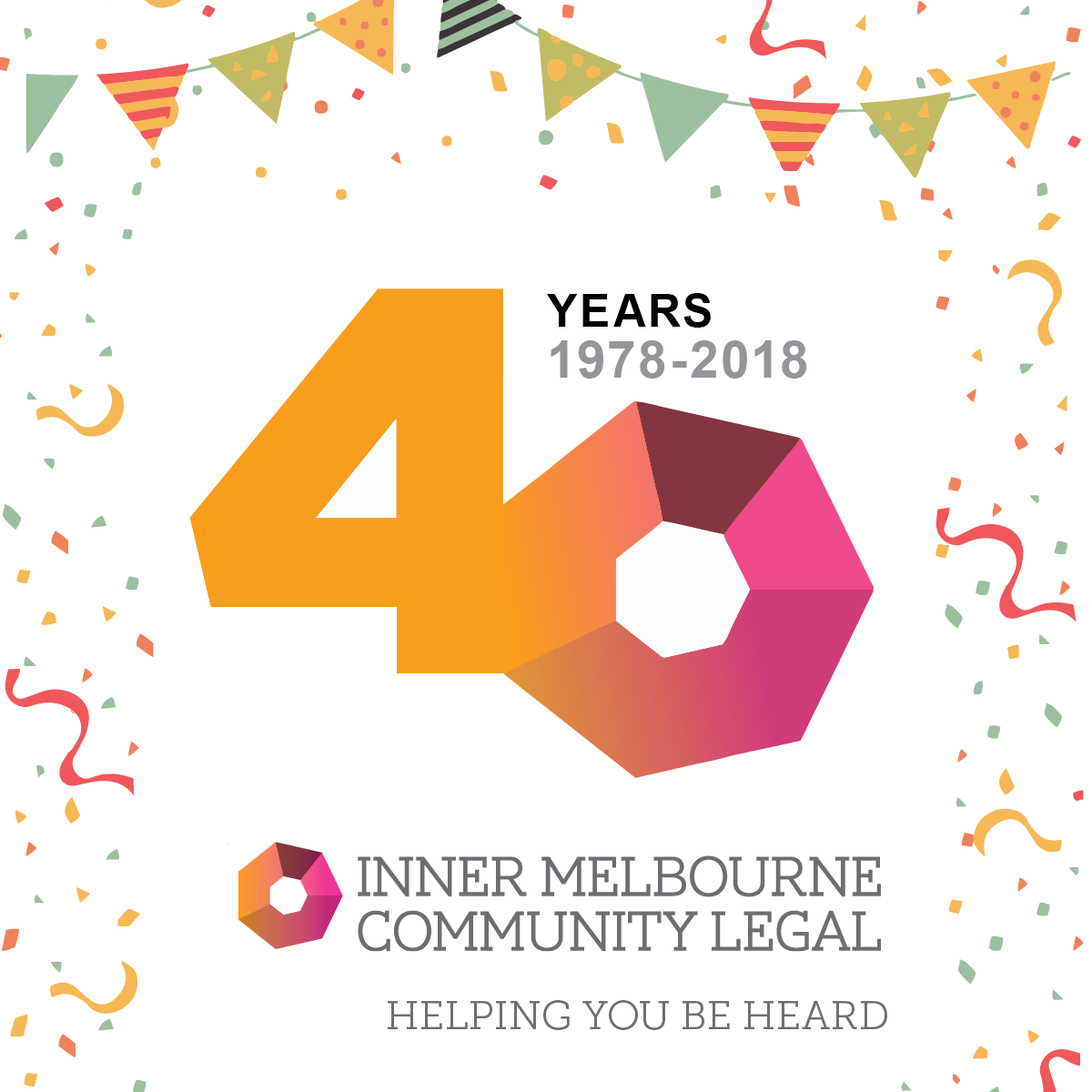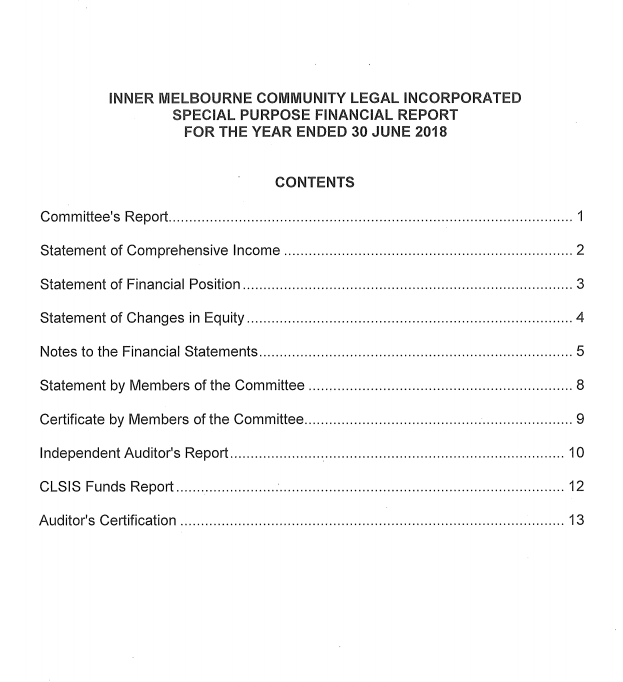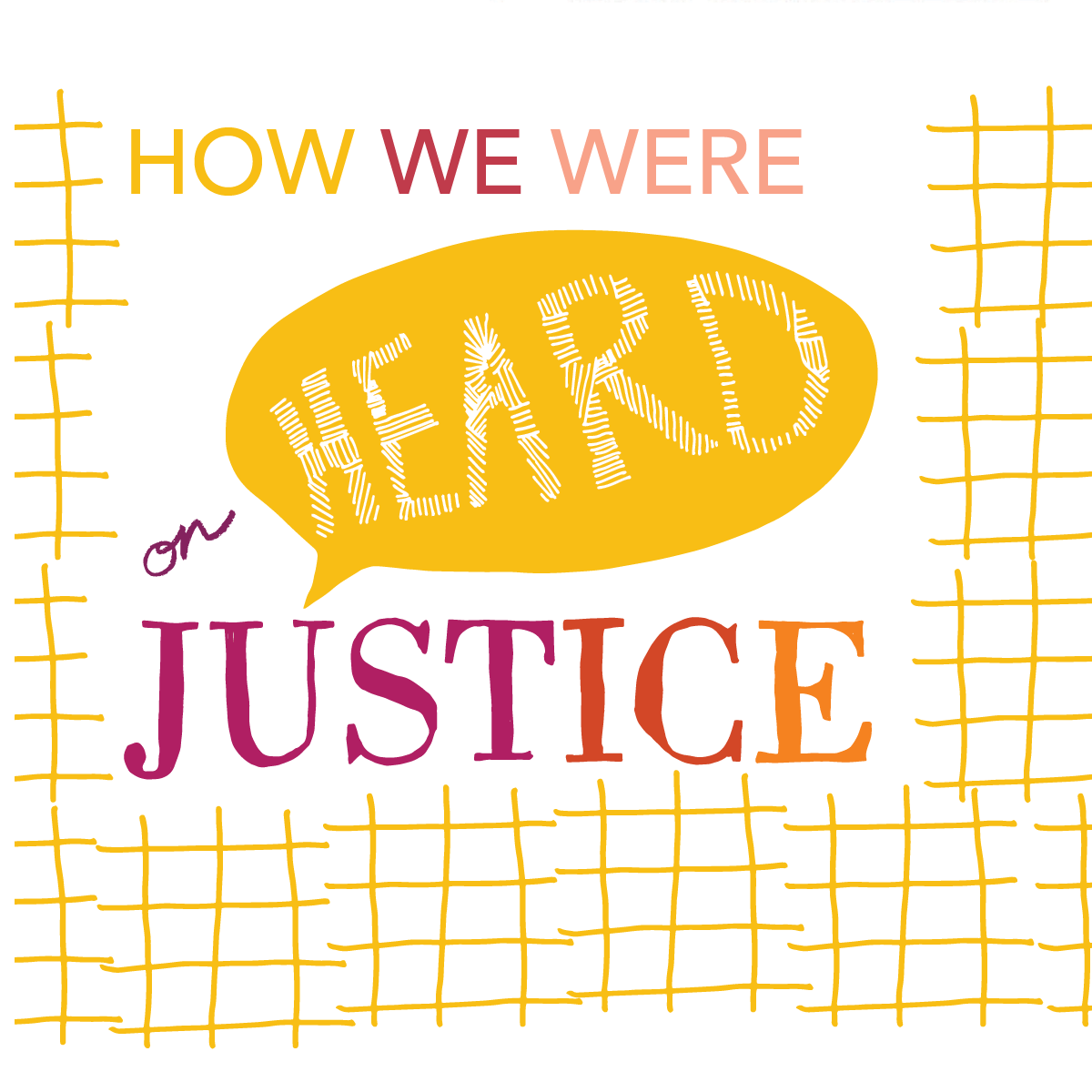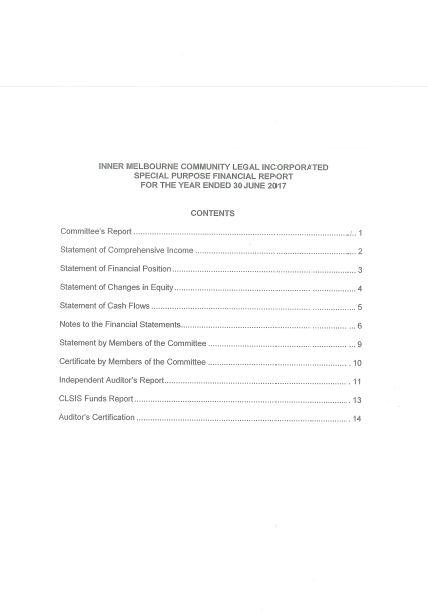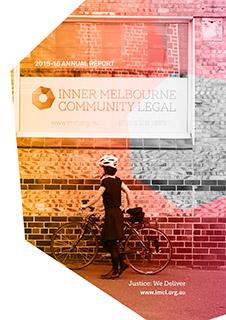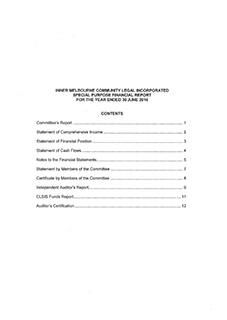Publications
Our Publications
Community Legal Mental Health Partnership Project
Final Report
The report establishes a best practice model for how and where to deliver legal assistance to mental health consumers and proposes systemic changes to improve their experience of accessing legal support and interactions with the justice system.
Policing COVID-19 in Victoria
Exploring the Impact of Perceived Race in the Issuing of COVID-19 Fines During 2020
Inner Melbourne Community Legal (IMCL) has called on the Victorian Government to waive all COVID-19 fines after its groundbreaking study revealed that Victoria Police engaged in racial profiling when it issued infringement notices during the first year of the COVID pandemic.
Getting Past Your Past
Moving on from a Police record in Victoria
Your official police record is a document produced by police when you ask for it. If you’ve never had any trouble with the police, you should get a clear record. If you’ve had trouble with police, it may show on your police record. In Getting past your past we explain exactly what may show on a police record and what should not.
Acting On The Warning Signs Evaluation
Acting on the Warning Signs is a Health Justice Partnership project with the Royal Women’s Hospital and the first of its kind in a major, metropolitan hospital in Australia. An external evaluation of the Acting on the Warning Signs project was conducted by the University of Melbourne in August 2014.
Health Justice Partnership Evaluation
The Royal Melbourne Hospital Evaluation Report 2018
IMCL provides legal services for patients at RMH through the HJP. In 2018, IMCL evaluated this service to assess if we are working in the best way for hospital staff and patients. Our evaluation showed that the barriers for people seeking legal assistance include accessibility and cost. The close proximity allows patient access, coordination of care, and optimal working relationships between the lawyers and social workers.
Partners In Care: The Benefits of Community Lawyers Working In A Hospital Setting
Report on the Cross-Site Evaluation of Health Justice Partnerships Between Three Metropolitan Melbourne Hospitals with Inner Melbourne Community Legal
Partners In Care: The Benefits of Community Lawyers Working In A Hospital Setting is a report detailing the findings and methodology of IMCL's Health Justice Partnerships with Royal Women's, Royal Melbourne and The Children's Hospital. The evaluation identified five essential requirements for CLC's to have successful HJPs with major metropolitan hospitals. It outlines the benefits of cooperation between community lawyers and health professionals in the coordination of care for vulnerable patients.
Annual Report
2021-2022 Final Audit
- Inner Melbourne Community Legal (June 2022)
- Inner Melbourne Community Legal (July 2021 - Feb 2022)
- Flemington and Kensington Community Legal Centre (July 2021 - Feb 2022)
2015-2016 Annual Report
IMCL is an independent not-for-profit legal service providing free and accessible legal assistance to people experiencing disadvantage in our local community. We pride ourselves on getting out into our community to reach our most vulnerable clients.
Our Annual Report outlines the work we have performed throughout the year.
Submissions
Submission into Parliamentary Inquiry into Rental and Housing Affordability Crisis
Date of Submission: July 2023
Our submission focuses on the crisis in affordability of private rentals and cost of living pressures, and its impact on public and community housing demand, and the need for enforceable rights and protections for social housing renters in preventing homelessness. Victoria needs to urgently increase supply of public housing to meet demands with the growing Victorian Housing Register waitlist.
Submission on the Exposure Draft of the Family Law Amendment Bill 2023
Date of Submission: March 2023
IMCL is supportive of the intention of the Exposure Draft of the Family Law Amendment Bill 2023 (Exposure Draft) to ensure ‘the best interests of children are prioritised and placed at the centre of the family law system’ (Consultation paper, 3). In particular, we commend the Government for the removal of the presumption of equal shared parental responsibility. We anticipate that these changes will address significant issues relating to complex considerations of child and familial safety.
Commonwealth Parliament Inquiry into Long COVID and Repeated COVID Infections
Date of Submission: November 2022
Long COVID patients fall through the financial and social support gap. A lot is unknown about the health consequences of long COVID, but it is predicted as many as one in 20 people who have had COVID will experience long COVID. That is, 400,000 people in Australia to date have had long COVID. People who experience long COVID may have reduced ability to work, care for their family and participate in everyday activities.
Joint legal assistance sector response to the Interim Report of the Social Housing Regulation Review
Date of Submission: February 2022
The length and density of the Social Housing Regulation Review (SHRR) Interim Report demonstrates the breadth and complexity with which the Review Panel has had to grapple in this review. We congratulate the Panel on a comprehensive, detailed and considered response to its Terms of Reference, and to its openness to new approaches, and willingness to survey international best practice, in particular Scotland, in informing its recommendations.
Submission to Consultation Paper 2 of the Social Housing Regulation Review
Date of Submission: November 2021
IMCL's submission to consultation paper two of the Social Housing Regulation Review highlights the trend in government investment towards relying on community housing proviers and proposes a number of recommendations to protect social housing tenants during this shift in housing policy.
Submission to Consultation Paper 3 of the Social Housing Regulation Review
Date of Submission: October 2021
IMCL provided a brief response to the Social Housing Regulation review's Consultation Paper 3, commenting on the interaction of contracts and regulation, for profit providers, affordable housing and growth and providers diversity.
Submission to Consultation Paper 1 of the Social Housing Regulation Review
Date of Submission: July 2021
Together with a group of community legal centres that provide assistance to people with tenancy related needs, we responded to Consultation Paper One, which invited feedback on the terms and scope of the inquiry. Our joint submission set-out key underlying principles that should inform the review.
Submission to the 10 Year Social and Affordable Housing Strategy
Date of Submission: April 2021
In recent decades housing in Australia has been seen as an investment more than a home. At the same time homelessness continues to be a ‘growing and seemingly intractable problem’, as the recent Parliamentary Inquiry into Homelessness put it. We have an opportunity now in Victoria, to reset the trajectory, to put in place policy settings, which demonstrate and recognise housing as a fundamental human right. A right that the discussion paper correctly observes, provides the ‘foundation upon which strong individuals, healthy families and resilient communities are built, grow and prosper’.
Submission to the Victorian Ombudsman Investigation into the Treatment of People and Conditions of Public Housing Lockdown
Date of Submission: August 2020
Recognising the unprecedented impact of the hard lockdown on public housing residents in North Melbourne and Flemington in July, IMCL made a submission to the Victorian Ombudsman's Investigation into the Treatment of People and Conditions of Detention at 33 Alfred Street, North Melbourne. Informed by our experience assisting residents, IMCL made several early complaints to the Victorian Ombudsman outlining our concerns around residents' health and safety, and a lack of access to clear, accessible information. You can also read our lockdown media releases here.
Submission to Review of Fines Reform Under the Fines Reform Act 2014
Date of Submission: February 2020
IMCL assists vulnerable members of our local community with a number of legal matters, including fines. The Fines Reform Advisory Board has requested submissions regarding the fines system on the back of reforms introduced by the Fines Reform Act 2014, which took effect at the start of 2018.
Submission to the Inquiry into Homelessness in Victoria
Date of Submission: January 2020
In our submission to the Inquiry into Homelessness in Victoria, IMCL strongly opposes the Public Housing Renewal Program initiative of the Victorian Government, which will only marginally increase the number of publicly owned homes while in fact reducing the overall capacity to house people on these redeveloped estates. In addition to undertaking large scale investment in public housing to enable rapid expansion of housing stock owned and managed by the DHHS, IMCL makes a number of recommendations.
Submission to the Victorian Ombudsman on the Investigation into State Trustees Limited
Date of Submission: August 2019
IMCL was invited to provide a submission for the Victorian Ombudsman’s investigation into State Trustees. Through IMCL’s various partnerships and close work with social workers, we were made aware of several issues that State Trustees’ clients were experiencing. Read more about IMCL's response to the Victorian Ombudsman's report here.
Submission to the Inquiry into a Legislated Spent Convictions Scheme
Date of Submission: July 2019
Criminal checks are increasingly becoming common practice by major employers, yet Victoria remains the only jurisdiction that does not have a legislated scheme for convictions to become spent. Such a scheme would allow people who have been involved in the criminal justice system the opportunity to leave behind the stigma attached to this, particularly in relation to minor offences and significantly aged convictions or findings of guilt. IMCL endorses the recommendations made by Liberty Victoria's Rights Advocacy Project (RAP) and the Federation of Community Legal Centres (FCLC).
Submission to the Royal Commission into Mental Health
Date of Submission: July 2019
In our submission, we highlight the importance of integrated legal assistance services for our clients, who often experience a range of intersecting legal issues arising from mental health issues and face significant obstacles in accessing services. In addition to increasing funding for existing and future integrated service models, IMCL makes a number of recommendations to address the overrepresentation of people with mental illness in the justice system.
Submission to the Victorian Ombudsman on the Investigation into State Trustees Limited
Date of Submission: August 2018
IMCL was invited to provide a submission for the Victorian Ombudsman's investigation into State Trustees. Through IMCL's various partnerships and close work with social workers, we were made aware of several issues that State Trustees' clients were experiencing. Read more about IMCL's response to the Victorian Ombudsman's report here.
Submission on the Review of Victims of Crime Assistance Act 1996 (Vic)
Date of Submission: October 2017
The focus of this submission is on addressing issues with the current Victims of Crime Assistance Act 1996 (Vic) and not whether there is a need for broader reform. Our responses have been informed by a number of case studies that we have gathered over a number of years of working in this area.
Submission on the Abbotsford Street Renewal Program
Date of Submission: October 2017
Proposals by the Department of Health and Human Service to redevelop ageing public housing estates have been referred for consideration to the Social Housing Renewal Standing Advisory Committee. The Committee has been asked to advise on the suitability of these proposals and to enable community consultation on the issue. One of these estates - Abbotsford Street, North Melbourne - is within IMCL's catchment. Based on our ongoing legal work with vulnerable tenants, we made several observations.
Submission on the Abbotsford Street Renewal Program
Date of Submission: October 2017
Proposals by the Department of Health and Human Services to redevelop ageing public housing estates have been referred for consideration to the Social Housing Renewal Standing Advisory Committee. The Committee has been asked to advise on the suitability of these proposals and to enable community consultation on the issue. One of these estates - Abbotsford Street, North Melbourne - is within IMCL's catchment. Based on our ongoing legal work with vulnerable tenants, we made several observations.
Response to Victoria Legal Aid’s Means Test Options Paper
Date of Submission: June 2017
As a member of the VLA practitioner panels for summary crime, family law and family violence, IMCL is well placed to comment on the Victoria Legal Aid’s Means Test Options Paper as we encounter issues with the means test on a daily basis. These submissions are intended to highlight any strengths or weaknesses with the options outlined in the Paper. We have provided de-identified case studies to illustrate the issues we have described.
Law Reform Proposal on the Requirements to Notify VicRoads of a Change of Address
Date of Submission: April 2017
Through its work assisting clients with offences under the Road Safety Regulations it has become apparent to IMCL that there is a problem with the Road Safety Regulations regarding notifying VicRoads of a change of address. In particular, the Road Safety Regulations have a disproportionate impact on, and cause financial hardship to already disadvantaged people including those experiencing homelessness and family violence.
Submission on the Activities (Public Amenity and Security) Local Law 2017
Date of Submission: March 2017
The City of Melbourne have proposed amendments to the Activities Local Law 2009 in an attempt to address the increased numbers of people sleeping rough in the CBD. The key aspects of the Amending Law broaden the ban on camping and provide for confiscation and disposal of unattended items.
Response to Options Paper on the Residential Tenancies Act Review
Date of Submission: February 2017
This submission in response to the Residential Tenancies Act Review Heading for Home – Options Discussion Paper. Inner Melbourne Community Legal (IMCL) welcomes the opportunity to contribute to the review of the Residential Tenancies Act 1997 (Vic).
Submission for the Ombudsman’s own motion investigation into maintenance charges against tenants (MCATs)
Date of Submission: October 2016
IMCL considers MCATS to be a systemic issue which can place tenants at risk of homelessness or continued homelessness. This submission raises concerns that MCAT amounts are often inflated; that the Office of Housing fails to act as a model litigant; and that the Victorian Civil and Administrative Tribunal is not an even playing field for vulnerable tenants. IMCL also considers that MCATs issued in the context of family violence warrant the attention of the Ombudsman.
Response to Victoria Legal Aid’s Means Test Review
Date of Submission: September 2016
This submission suggests that VLA develop an online screening tool to assess eligibility; that VLA considers whether documentary requirements should be waived if a person is experiencing homelessness or unable to access their usual accommodation due to family violence; and that VLA should use greater discretion when considering financial information from financially associated persons. The submission also addresses issues with funding associated with preparation work by CLCs and obtaining expert reports.
Response to the RTA Review Consultation Paper
Date of Submission: August 2016
IMCL believes that a central purpose of residential regulatory and policy framework in Victoria should be to ensure that rental properties are safe, structurally sound and fit for habitation. In light of this, IMCL made five recommendations in this submission.
Access to Justice Review
Date of Submission: February 2016
In a submission to the Department of Justice and Regulation Victoria, IMCL recommends improving access to legal assistance by developing a database of services and information available in Victoria; supported the expansion of alternative dispute resolution mechanisms; and appointing additional Tribunal members to VCAT and amending legislation as to the enforceability of VCACT decisions. Additionally, the submission draws attention to the problem of increased demand for legal assistance coupled with a lack of stability in funding for the legal assistance sector.
Submission to the Royal Commission into Family Violence
Date of Submission: 29 May, 2015
Drawing on almost 40 years’ experience, IMCL’s submission adresses the need to expand and improve support available for victims of family violence. We recommend improving and increasing the availability of multi-disciplinary and holistic models of care; recognising that the antenatal and postnatal periods are high risk times for victim/survivors of family violence; amending the Birth Registration Statement to include information on service providers; the inclusion of respectful relationships education in the national curriculum; and that the intervention order framework be improved to better support victims of family violence.
Submission to the Royal Commission into Family Violence
Date of Submission: May 2015
Drawing on almost 40 years’ experience, IMCL’s submission adresses the need to expand and improve support available for victims of family violence. We recommend improving and increasing the availability of multi-disciplinary and holistic models of care; recognising that the antenatal and postnatal periods are high risk times for victim/survivors of family violence; amending the Birth Registration Statement to include information on service providers; the inclusion of respectful relationships education in the national curriculum; and that the intervention order framework be improved to better support victims of family violence.
Media Releases
Community Lawyers Welcome Turnbull Support for Family Violence Victims at Hospitals
Date of Release: 24 September 2015
The PM's announcement today of support for this Health-Justice Partnership is welcome relief for a service that was facing closure next year without ongoing support” said Mr Dan Stubbs, CEO of Inner Melbourne Community Legal (IMCL).
Inner Melbourne Community Legal’s Acting on the Warning Signs project, supported by the Victorian Legal Services Board, provides community lawyers who provide legal services for women escaping/surviving family violence through partnerships with inner city Hospitals.
Acting on the Warning Signs enables health professionals to identify and respond to family violence and to provide crucial legal advice and information to patients on family violence complemented by legal, health and social work assistance at the hospital.
For the full text, please download the Media Release below.

